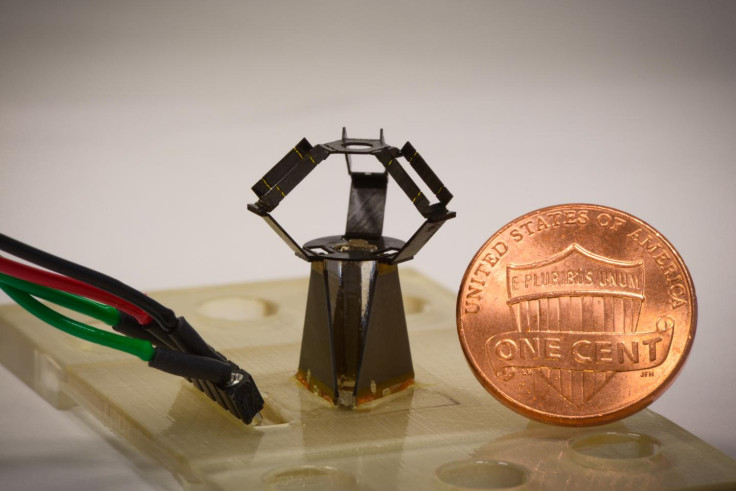Penny-sized robot that could carry out surgeries developed by scientists
The milliDelta is a miniaturised version of Delta robots used in many industrial processes.

A tiny, penny-sized robot, which could potentially be used in a host of applications ranging from microscopic surgeries to micro-manufacturing, has been developed by Harvard scientists.
The milliDelta, as it is known, is a miniaturised version of Delta robots which are deployed in many industrial processes – including food packaging, machining and welding. They use three individually controlled arms to guide a platform which can grasp, move or release objects.
The new robot measures just 15mm x 15mm x 20mm, making it about the same size as a penny - by far the smallest Delta robot to date.
Despite its diminutive size, its arms can carry out movements with incredible precision with force and at speeds 15 to 20 times faster than currently available Deltas, the scientists claim.
The new robot is described in a paper published in the journal Science Robotics.
The design was inspired by pop-up books and origami – the robot can be assembled from flat sheets of composite materials that can be folded into the desired shape, making it easy to manufacture.
The team say that milliDelta's unique abilities would make it ideal for things like pick-and-place industrial processes – which are commonly used to place components in electronic circuits – as well as microscopic surgeries, such as retinal operations, which require extremely precise movements.
"The work by Wood's team demonstrating the enhanced speed and control of their milliDelta robot at the millimeter scale opens entirely new avenues of development for industrial and medical robots, which are currently beyond the reach of existing technologies," said Donald Ingber, from Harvard's Wyss Institute for Biologically Inspired Engineering.





















